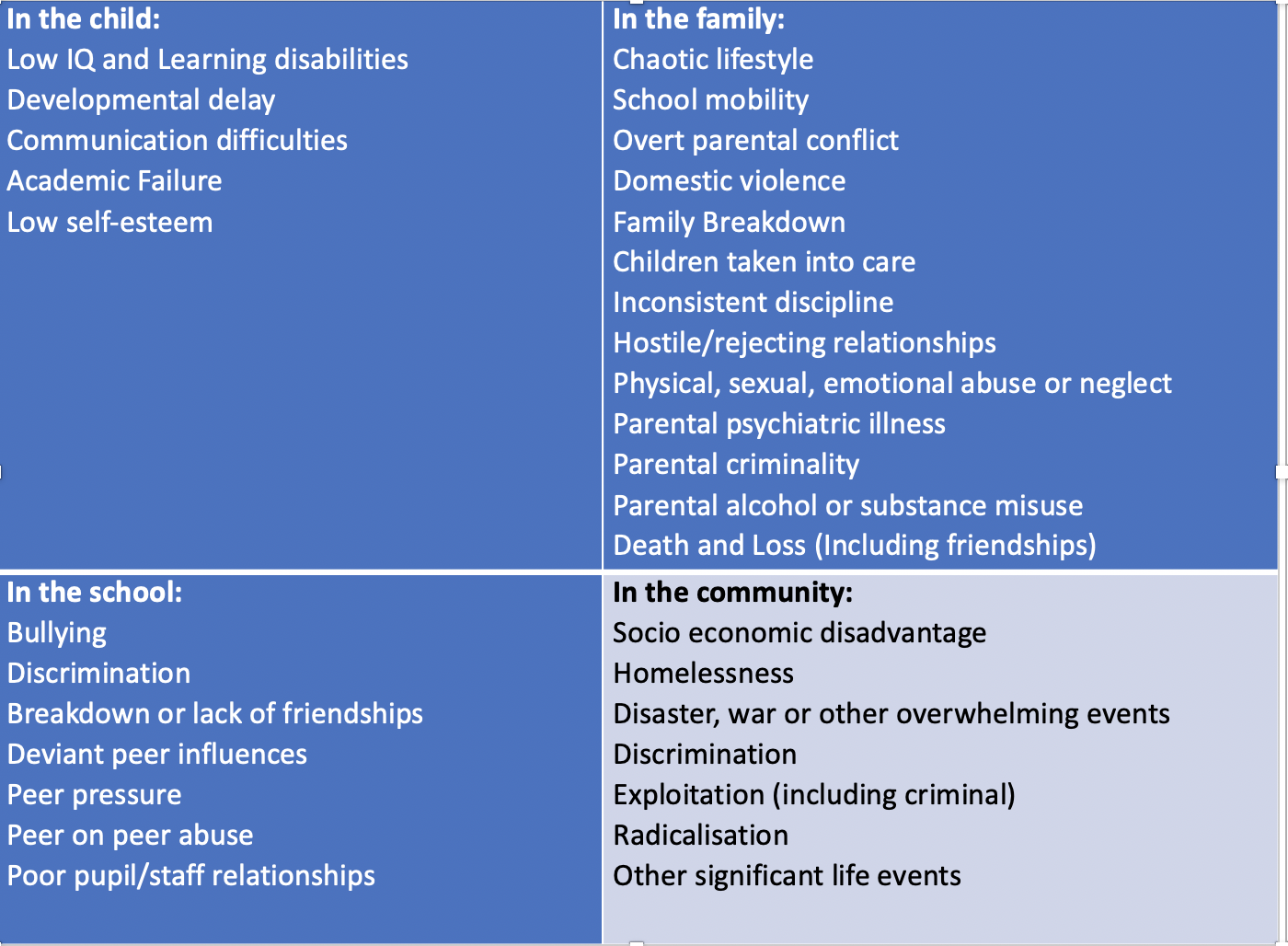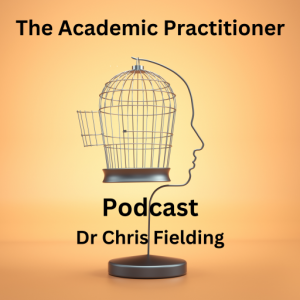This week, I was asked to speak on the subject of social emotional and mental health (SEMH) to a group of SENCOs and professionals working with young people in schools, As usual, I began by referring them to the DFE’s ‘Behaviour and Mental Health in Schools’. 1
This post is a response to my re-reading of the guidance and my concern that the standards agenda in English education may be a large omission from the guidance’s list of risk factors associated with the wider context in which school staff, children and families exist. Particularly those with low attainment, language difficulties, social communication difficulties and SEND. I wrote recently about an article 2 describing the correlation between these groups of children and exclusion. In our setting, we notice a similar link and I consider the standards agenda to be a powerful underlying casual mechanism contributing to bringing this about. My concern is that the DFE guidance makes no reference to it.
The ‘Mental Health and Behaviour in Schools’ (DFE, 2018) guidance is a very good document. It describes behaviour as a symptom of unmet need rather than a need in of itself. It takes a social ecological view of a child’s resilience and lists the risk and protective factors which may contribute to them presenting with SEMH needs. Schools can go a long way to supporting children with SEMH needs by using the guidance. For the past two years, I have been using the table below (my own summary of that in the DFE guidance) to describe the risk factors a child may face in the the domains of the child, the school, family and the community.
However, I have always had an issue with it. The term ‘academic failure’ is placed into the domain of child. I think that speaks volumes about a discourse where policy makers omit the associated risk factors in the domain of the school and those associated with wider education policy. In what sense has the child failed academically? Is it simply that a child is not operating at the academic level which is typical for a child their age? Why would that be a risk factor in a system which values the efforts of all children? Is it a perception of academic failure experienced by the child? What would lead to that perception? Is it that they have spent their entire schooling in an academic environment where they struggle to keep up and are operating at a lower level than their peers? Is it that they are part of a school system that regularly tests children and provides them and their family with written confirmation that they have not met the standard?
The professional disturbance I feel comes from the absence of awareness or acknowledgement from policy makers that their policy may have associated risk which may impact on the daily lived experience of both the school staff and children.
My suggestion is that the standards agenda in mainstream education has created an environment in which children who struggle to keep up and fit into that academically driven world find it difficult. I believe that this is a risk factor which adds to the likelihood of them presenting with SEMH needs and behaviour which leads to exclusion. I believe that schools should look beyond adversity within the family, SEND and community risk factors and consider how they might themselves be adding to the cumulative risk factors experienced by the child.
- Department for Education. (2018) Mental health and behaviour in schools. [Online] [Accessed on 16th January 2021] https://assets.publishing.service.gov.uk/government/uploads/system/uploads/attachment_data/file/755135/Mental_health_and_behaviour_in_schools__.pdf
- Tejerina-Arreal, M. Parker, C., Paget, A., Henley, W., Loga, S., Emond, A. and Ford, T. (2020) ‘Child and adolescent mental health trajectories in relation to exclusion from school from the Avon Longitudinal Study of Parents and Children.’ Child and Adolescent Mental Health 25(4) pp. 217-223

